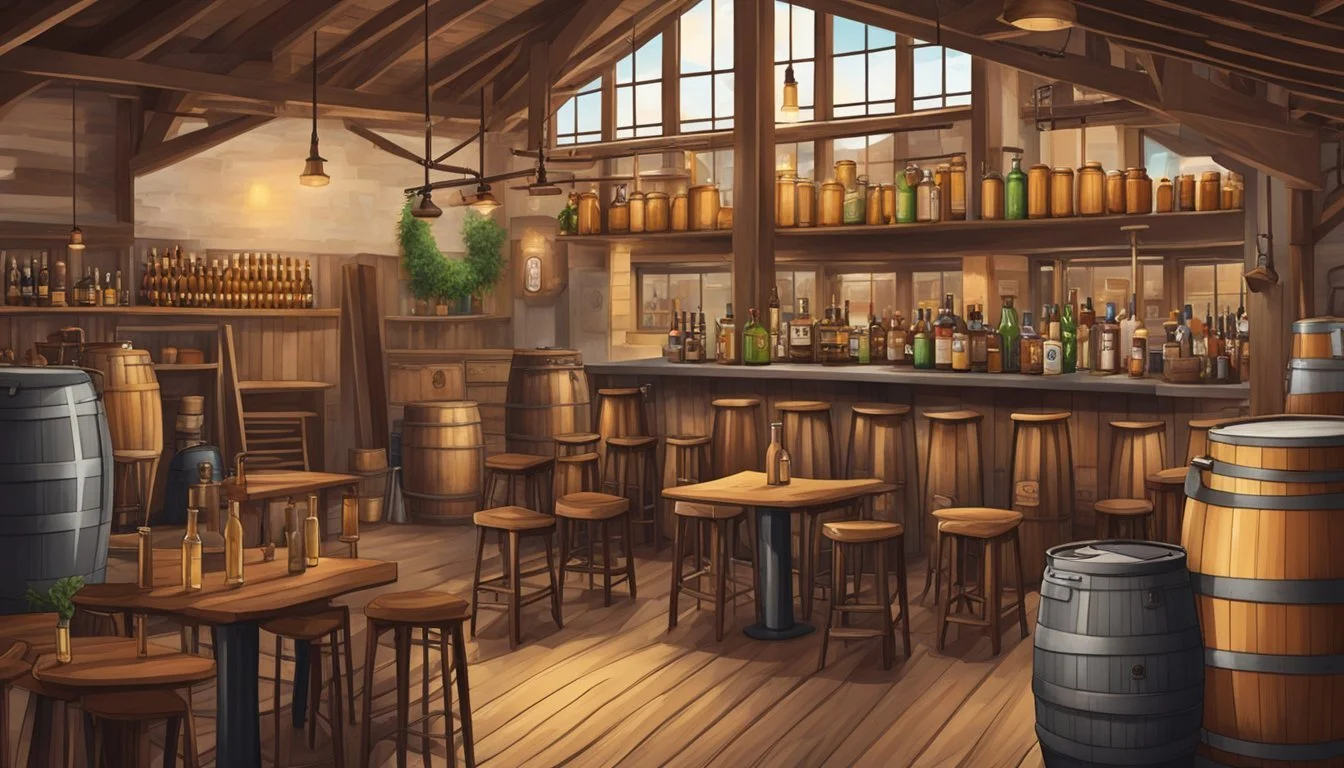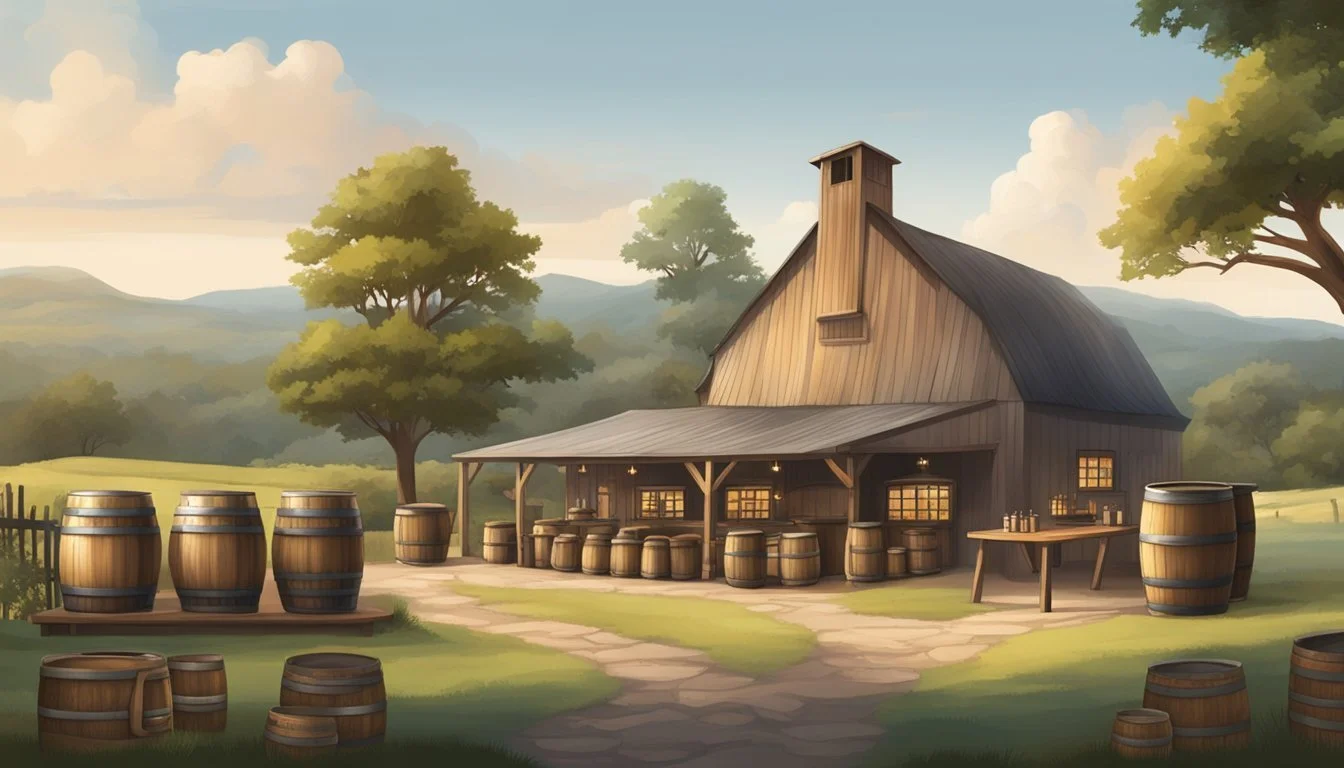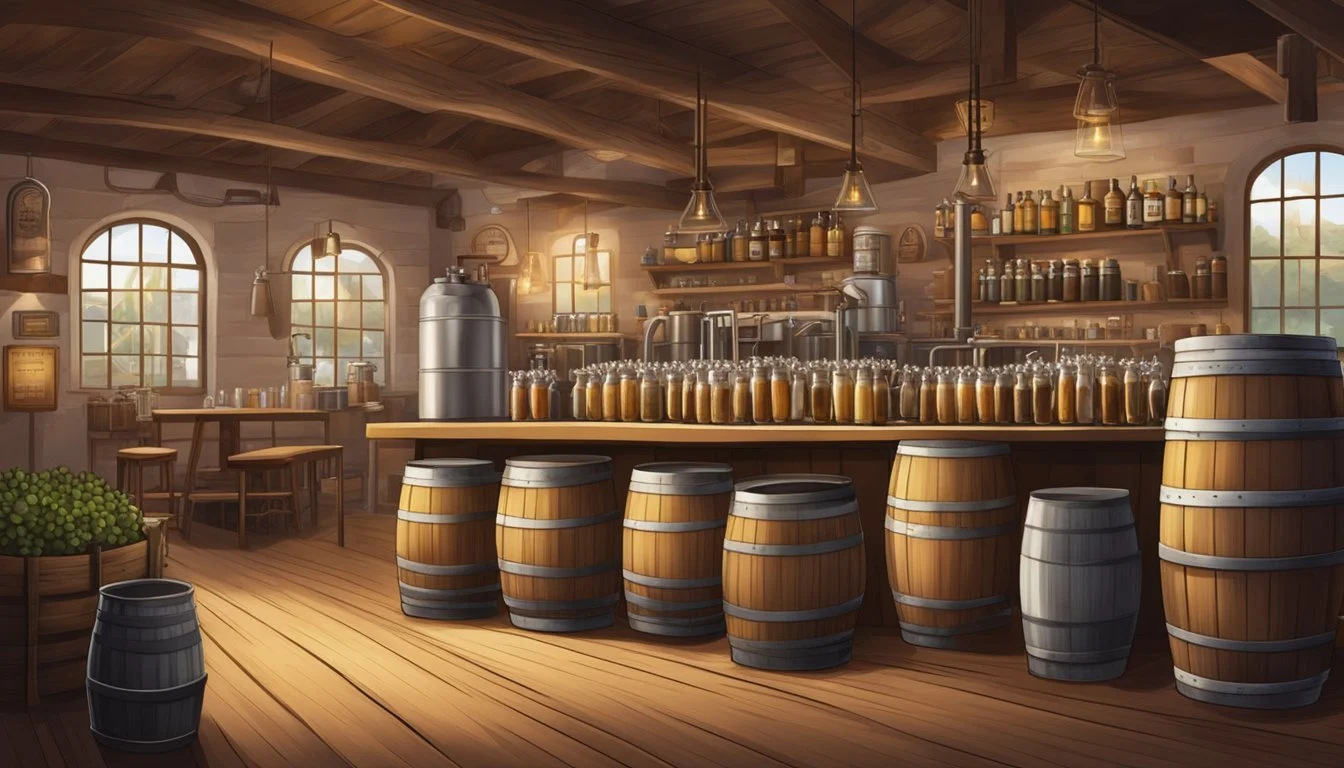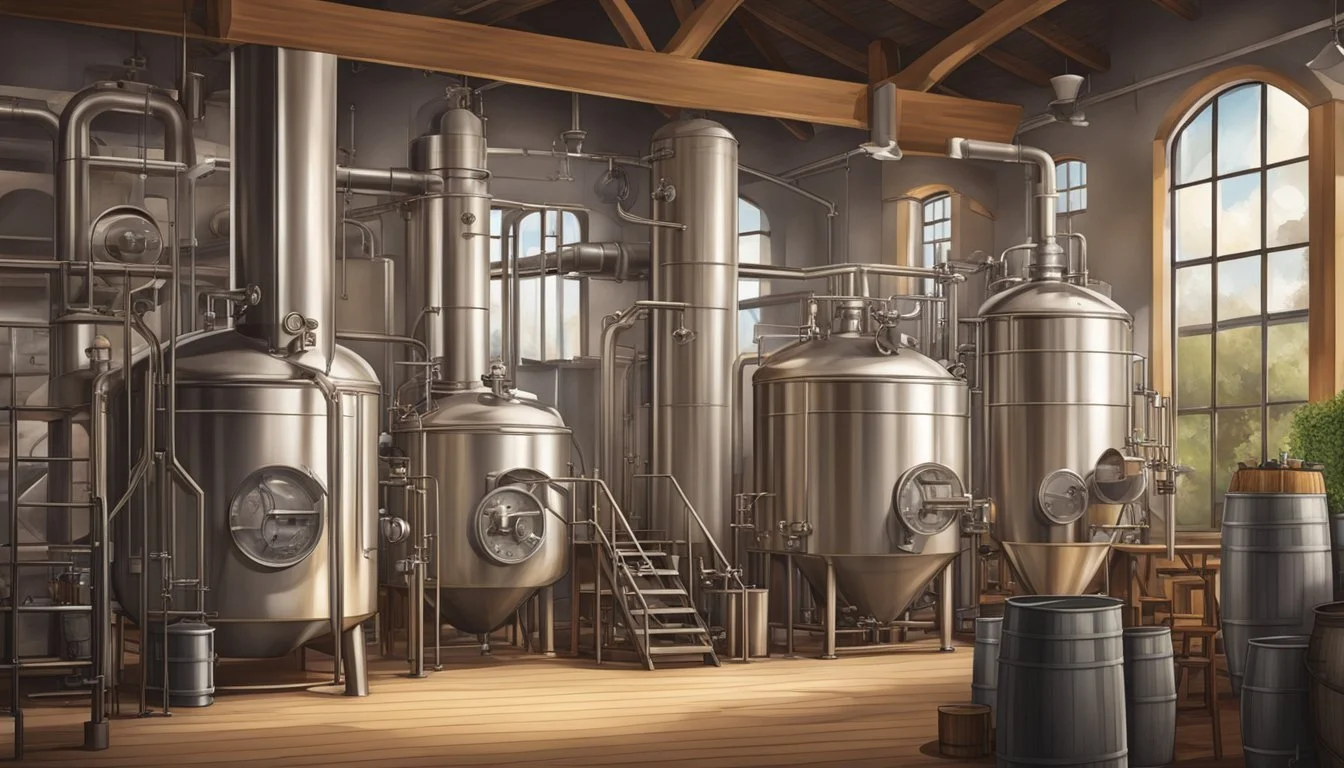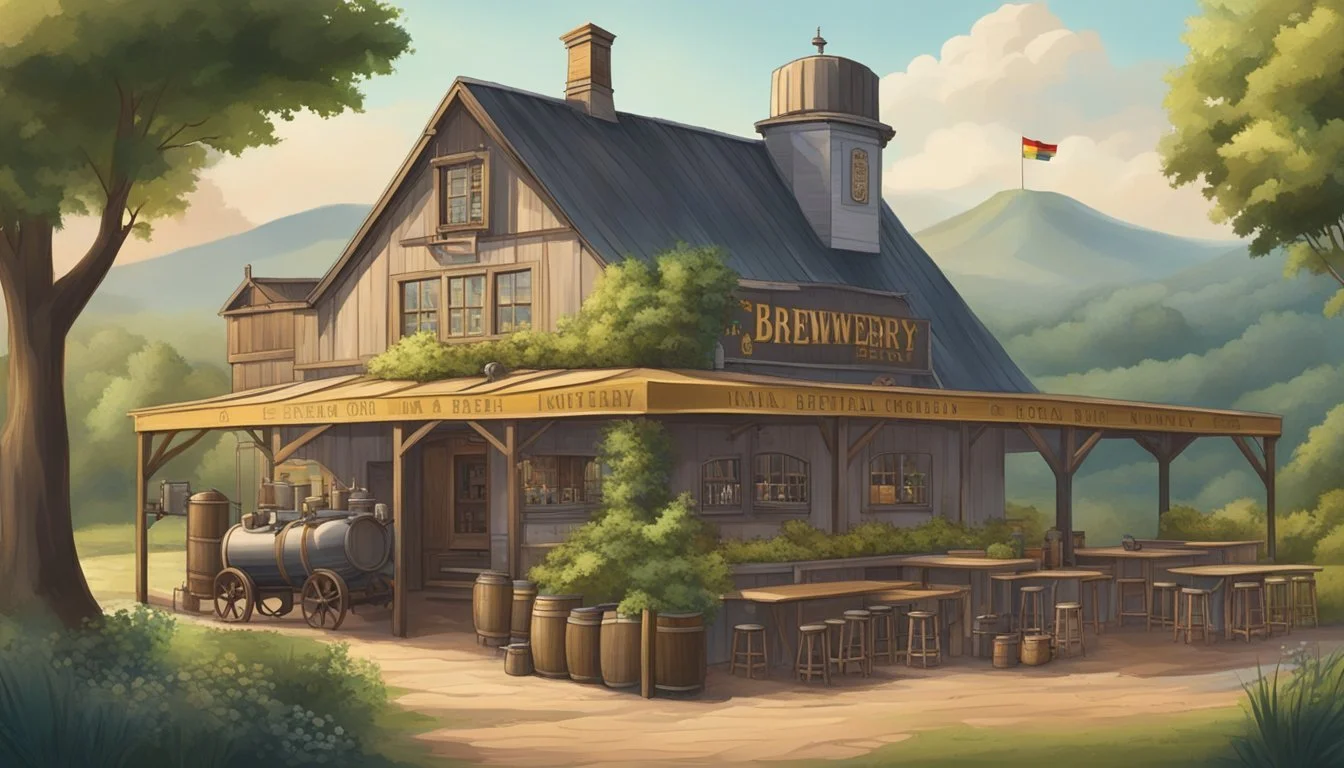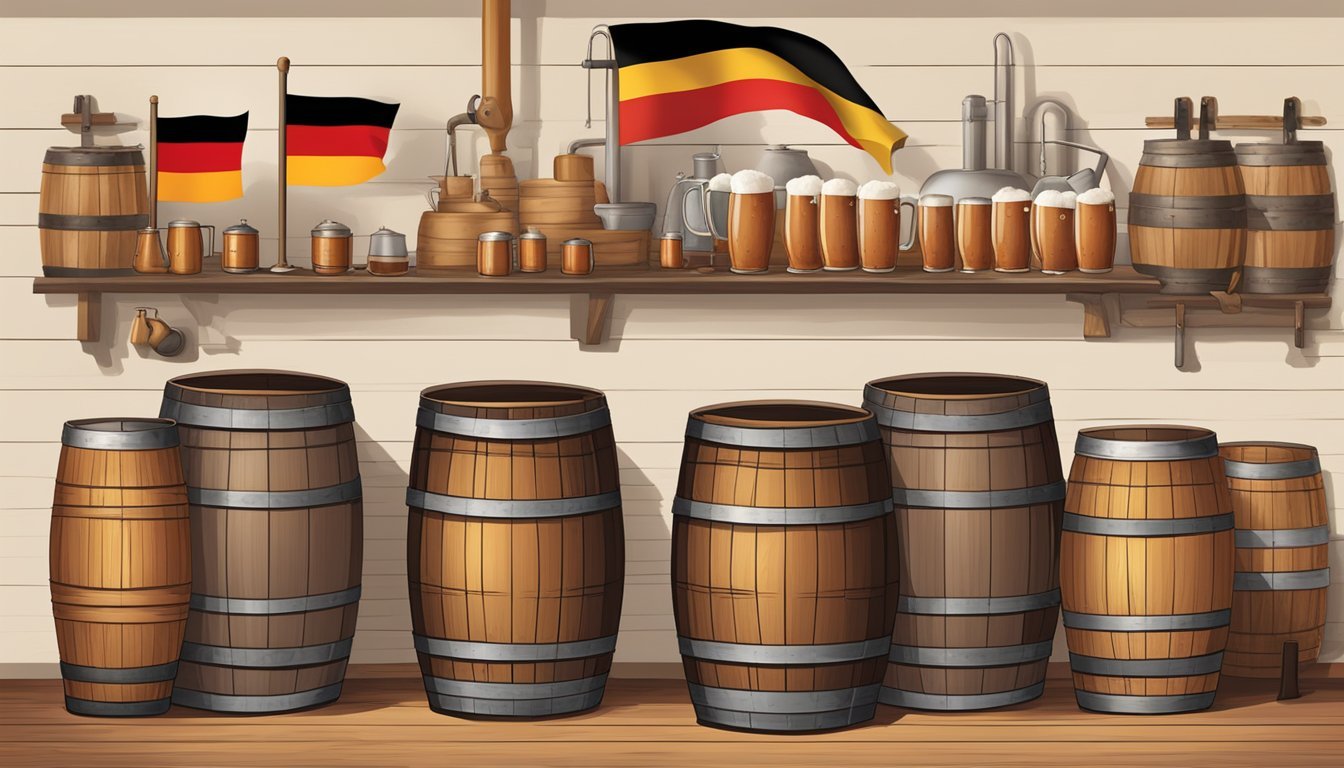German Texan Brewing Traditions and History
A Snapshot of Cultural Heritage
The brewing traditions of Texas have deep roots in German history, a testament to the profound influence of German immigrants on the state's culture. From the mid-19th to the early 20th centuries, German settlers flocked to Texas, bringing with them a brewing heritage that would leave a lasting impact. These pioneers established a thriving beer culture, which continues to impress with its authenticity and quality. At the heart of the tradition stands the Shiner Brewing Association, established in 1909 by local German and Czech enthusiasts, and the iconic Lone Star Brewery, Texas's first large-scale beer operation, initiated by German-born Adolphus Busch.
These establishments were not mere businesses; they were cultural hubs where the German love for finely crafted lagers and community celebration flourished. Major festivals like Wurstfest in New Braunfels showcase this heritage, drawing thousands to partake in German culinary and brewing customs each November. The German Texan brewing tradition is characterized by a commitment to beautifully balanced lagers, with a focus on quality ingredients and meticulous brewing techniques passed down through generations.
Moreover, the diversity within Texas's beer scene is a direct result of these early influences, which were adapted to the local context, creating a unique brewing landscape. This tradition is not confined to historical reenactments but is a living practice, continuously evolving while retaining the core principles brought over a century ago. Whether through a local Oktoberfest celebration or a visit to a historic brewery, the German influence on Texan beer culture is recognised and celebrated, an enduring legacy of a people who valued craftsmanship, community, and the art of a well-brewed beer.
German Immigration to Texas
German immigration significantly shaped the cultural and social landscape of Texas, particularly with the establishment of prominent towns and the Adelsverein's pivotal role in migration patterns.
German Pioneers and Settlements
In the early 19th century, an influx of German immigrants began making their way to Texas, seeking better economic opportunities and freedom. These pioneers were instrumental in founding several German-centric towns in Central Texas, notably New Braunfels, Fredericksburg, and Boerne. Each town developed its own distinct German Texan identity, but together they contributed to a broader German heritage in the region.
New Braunfels: Founded by Prince Carl of Solms-Braunfels in 1845, quickly became a hub of German culture.
Fredericksburg: Established shortly after in 1846, noted for maintaining traditional German customs.
Boerne: Settled by German immigrants in the 1850s, known for embracing and perpetuating German Texan traditions.
Adelsverein and Migration Patterns
The Adelsverein, officially known as the Society for the Protection of German Immigrants in Texas, was formed by a group of German noblemen to promote, organize, and support the emigration of Germans to Texas.
Established: 1842
Purpose: To safeguard and assist German immigrants
Impact: Facilitated the establishment of German communities throughout Texas
By coordinating efforts to settle Germans in Texas, the Adelsverein significantly influenced migration patterns, directly affecting the demographic makeup of Central Texas. By sponsoring thousands of German immigrants, the society enabled a more structured and sizable shift, making the German presence in Texas not just a series of isolated incidents but a considerable movement that left a lasting imprint on the state's cultural heritage.
Brewing Beginnings in Texas
The genesis of brewing in Texas is marked by modest origins and later bolstered by European influence. Particularly, German and Czech immigrants played a pivotal role, forging a robust beer culture through their brewing techniques and traditions.
Early Texas Breweries
Texas's brewing history dates back to its earliest settlements, with native tribes crafting fermented drinks from indigenous plants and grains. Small-scale, local breweries emerged, primarily as home operations. However, records pre-Civil War are sparse, obscuring much of the particulars of these initial endeavors.
Influence of German and Czech Brewers
By the mid-19th century, German and Czech cultures infused Texas with a lager beer revolution. German immigrants specifically had a pronounced impact on the burgeoning brewery scene. They established numerous small breweries throughout Texas, particularly in San Antonio, Brenham, and New Braunfels. These brewers combined their rich brewing heritage with local ingredients, contributing to a unique Texan beer profile.
Their influence also spread to the establishment of larger entities, such as the Shiner Brewing Association, which was founded by German and Czech locals in 1909. It exemplifies the legacy of German and Czech brewing expertise in Texas, with Shiner Bock becoming its signature beer under the stewardship of Czech and German brewmasters.
Key Figures in Texan Brewing
The history of Texan brewing is marked by the contributions of influential individuals whose legacies continue to shape the state's beer culture. Two of the most prominent figures are Adolphus Busch, co-founder of Anheuser-Busch, and Heinrich Kreische, founder of the Kreische Brewery.
Adolphus Busch and Anheuser-Busch
Adolphus Busch was a German immigrant who played a pivotal role in the development of the American brewing industry. In 1860, he co-founded the Anheuser-Busch Brewing Association in St. Louis, Missouri. His marriage to Lilly Anheuser was both a personal and professional alliance that helped bolster the company's success. Busch's innovative approach to brewing, distribution, and marketing, including the introduction of refrigerated railcars and pasteurization, revolutionized the beer industry.
Founded: Anheuser-Busch
Industry Innovations: Refrigerated railcars, pasteurization
Significance: Helped Anheuser-Busch become a leading American brewery
Heinrich Kreische and the Kreische Brewery
Heinrich Kreische, a stonemason and brewer of German descent, settled in Texas and, in the 1860s, established the Kreische Brewery in La Grange. Its prominence grew due to Kreische's dedication to quality and his brewing techniques. The Kreische Brewery was once the third-largest brewery in Texas, known for producing a high-quality beer that catered to local German communities.
Founded: Kreische Brewery
Location: La Grange, Texas
Notable Achievement: Third-largest brewery in Texas during the 19th century
Prohibition Impact and Revival
The onset of Prohibition brought drastic changes to the brewing landscape in Texas, particularly impacting the operations of established German Texan breweries. This period was marked by the struggle for survival and a subsequent revival that reshaped the industry.
Effects of Prohibition on Breweries
With the enforcement of Prohibition in 1920, breweries across the United States, including those in Texas, were confronted with an existential threat. Lone Star Brewery and Spoetzl Brewery, among others in Texas, were forced to either shut down their beer production or pivot to alternative business models. As beer production was a significant aspect of German Texan cultural identity, this period presented a direct challenge to the notion of personal liberty, a value that German immigrants had historically cherished.
Many breweries turned to the production of "near beers" with minimal alcohol content, while others utilized their equipment for entirely different purposes, such as the production of ice or non-alcoholic beverages. The Prohibition era severely disrupted the continuity of brewing traditions brought by German immigrants, leading to the closure of several breweries.
Brewing after Prohibition
Following the repeal of Prohibition in 1933, the brewing industry in Texas, alongside the rest of the country, began a slow process of recovery. Renewed interest in traditional brewing techniques was sparked as Prohibition ended, allowing establishments like the Spoetzl Brewery to resume operations and reconnect with their heritage.
World War II, however, introduced new challenges, including material shortages and a focus on supporting the war effort, which again affected brewery operations. Despite these obstacles, the post-Prohibition era saw a gradual resurgence of the brewing industry in Texas. Breweries that survived the dry years leveraged their resilience to rebuild the German Texan brewing heritage, resulting in a diverse array of beer-focused businesses that honored their historical roots while looking to the future. The revival of these breweries marked a resurgence in the appreciation for craft and tradition within the industry.
Contemporary Brewing Scene
The contemporary brewing scene in Texas reflects a rich tradition influenced by German and Czech roots, with a strong presence of craft and microbreweries producing a diverse range of award-winning beers.
Craft Breweries and Microbreweries
Texas is a thriving hub for craft and microbreweries that honor traditional brewing methods while also embracing innovation. Live Oak Brewing and Austin Beer Garden Brewing (also known as ABGB) are prime examples, with a reputation for meticulously brewed German-style lagers. Their offerings echo the craftsmanship of yesteryear’s immigrant brewers but are tailored to modern palates.
Live Oak Brewing focuses on classic European beer styles and has made a name for its crisp lagers and hefeweizens.
Austin Beer Garden Brewing has garnered attention for its original creations that still pay homage to classical brewing.
Notable Texas Breweries
Spoetzl Brewery, located in Shiner, Texas, stands out as one of the oldest and most iconic breweries in the state. It has been producing its beloved Shiner Bock since 1913.
Pinthouse Pizza has emerged as a pioneer in the scene, not only offering craft beers but also a unique pizza pairing experience.
Spoetzl Brewery and Pinthouse Pizza represent the rich tapestry of Texas breweries where tradition and modern taste coalesce.
Brewing Competitions and Recognition
Texas breweries have regularly earned accolades at prestigious beer competitions:
Great American Beer Festival (GABF) Medals: Brewers from the Lone Star State, including those mentioned above, have received medals for their skill and excellence in various categories.
Craft Beer Awards: Texas craft breweries are frequently recognized for their mastery in creating both traditional and innovative beers.
The recognition from events such as the GABF medals highlights the quality and craft of Texas microbreweries in the national brewing landscape.
German Influence on Beer and Culture
The considerable impact of German heritage on Texan brewing traditions and the cultural festivities surrounding beer is witnessed through Oktoberfest and the adoption of German brewing techniques and beer styles.
Oktoberfest Celebrations
In Texas, Oktoberfest is a testament to the state's strong German cultural influences. Originating from Bavaria, Oktoberfest has become a yearly tradition, where Texans celebrate their German roots with music, food, and, notably, beer. Fredericksburg and New Braunfels, two towns with significant German histories, host annual Oktoberfest events, reflecting a commitment to preserving and honoring German traditions. The celebrations feature a range of German-style beers that are a central component, emphasizing the beverage's importance within German-Texan culture.
Brewing Techniques and Beer Styles
German immigrants brought with them to Texas not just a taste for beer but also meticulous brewing techniques. The Reinheitsgebot, or German Beer Purity Law, originally decreed by Bavarian authorities in 1516, likely influenced local brewing practices where only hops, barley, water, and later, yeast, could be used in beer production. The result was the establishment of a beer culture defined by clean, high-quality brews.
Traditional German Beer Styles Common in Texas:
Pilsner: A crisp, golden lager with a distinctive hop flavor.
Bock: A darker, maltier lager traditionally consumed in colder months.
Weissbier: A wheat beer that is often unfiltered, known for its fruity and spicy tones.
Through holding onto these traditional styles and adhering to authentic brewing methods, Texas continues to honor its German cultural influence. This respect for tradition keeps the connection to their heritage alive among German-Texan communities today.
Integration with Texan Society
German immigrants have profoundly influenced Texan culture, integrating their food, music, and architecture into the heart of Texan society. They have left an indelible mark that is felt in restaurants, festivals, and heritage homes across the state.
Cuisine and Restaurants
German Texan cuisine is a staple in many Texas communities, with restaurants serving traditional dishes such as schnitzel, bratwurst, and strudel. Restaurants like Otto's in Fredericksburg offer authentic German-Texan flavors, combining techniques and ingredients that have been passed down for generations. The annual Wurstfest in New Braunfels is a prime example of culinary integration, where food is a central aspect of the celebration, with a variety of German-Texan dishes available for the public to enjoy.
Food
Schnitzel
Bratwurst
Strudel
Music and Festivals
Music and festivals play a significant role in German Texan culture, with events like Saengerfest and Wurstfest incorporating live music, dancing, and traditional German celebration. These festivals foster a sense of community and provide opportunities for visitors to experience German-Texan culture. German polkas and waltzes are often featured, with bands and dancers keeping the German heritage alive through their performances.
Music
Polkas
Waltzes
Architecture and Heritage Homes
German influence on Texan architecture is evident in the many heritage homes that encompass the German-Texan culture. Towns like Fredericksburg and New Braunfels showcase unique architectural styles with features such as Fachwerk (half-timbering) and German vernacular details. The preservation of these homes also reflects the respect for German heritage and a commitment to maintaining the cultural identity that Germans brought with them to Texas.
Houses
Fachwerk
German vernacular homes
Decor
Authentic German style
Period-appropriate furnishings
Preservation Efforts and Historical Recognition
Preservation efforts ensure the longevity of German Texan brewing traditions and historical recognition celebrates the cultural contributions of German immigrants to Texas. Museums and heritage organizations actively work to share the rich tapestry of this history.
Museums and History Centers
Museums and history centers play a crucial role in preserving German Texan brewing traditions. Notable institutions include the Pioneer Museum in Fredericksburg and the Sophienburg Museum in New Braunfels, both actively showcasing the historical legacy of German settlers in Texas. The University of Texas at Austin sustains efforts to preserve cultural heritage with its Texas German Dialect Project, aimed at conserving the Texas German language and associated traditions.
Historical Sites
Fredericksburg: Pioneer Museum
New Braunfels: Sophienburg Museum
Heritage Organizations and Commissions
Heritage organizations and commissions contribute significantly to the recognition and preservation of German Texan heritage. The Texas Historical Commission works to honor historical sites, including breweries, and the Texas State Historical Association provides educational resources and promotes historical literacy. These entities, with the involvement of cities like San Antonio, Houston, Fort Worth, and El Paso, ensure that the historical impact of German Texan brewing is recognized and remembered.
Key Organizations
Texas Historical Commission
Texas State Historical Association
Cities with German Texan Heritage Programs:
San Antonio
Houston
Fort Worth
El Paso
Challenges and Future of German-Texan Brewing
The brewing landscape in Texas is rich with the influence of German heritage, but it now faces unique modern challenges. Texas breweries with roots in German tradition are navigating a complex web of modern brewing laws as well as shifting market trends.
Market Dynamics:
German-Texan breweries must remain true to their cultural identity while also appealing to a diverse customer base. Texas has seen a trend towards craft beer and artisanal brewing, challenging these breweries to innovate within their traditional frameworks.
Legal Hurdles:
Brewing laws in Texas can be intricate, influencing how breweries operate. These laws have a significant impact on production limits, distribution, and sales, forcing German-Texan breweries to stay vigilant and adaptable.
Preservation of Heritage:
Maintaining German brewing customs within a multicultural Texas is crucial. Breweries take pride in their historical roots, often balancing authenticity and adaptation. Their commitment to German brewing techniques and recipes is an essential part of Texas's broader cultural tapestry.
Future Prospects:
The future for German-Texan breweries seems promising. They are well-positioned to leverage their historical narratives while capitalizing on the craft beer movement. By blending traditional practices with innovative approaches, they can continue to thrive in Texas's evolving beer scene.
In summary, German-Texan brewers must constantly adapt to regulatory challenges and market trends, all while preserving the German influence that is paramount to their identity. Their adaptability and respect for heritage poise them to continue as custodians of a rich brewing tradition in the Texas beer market.

